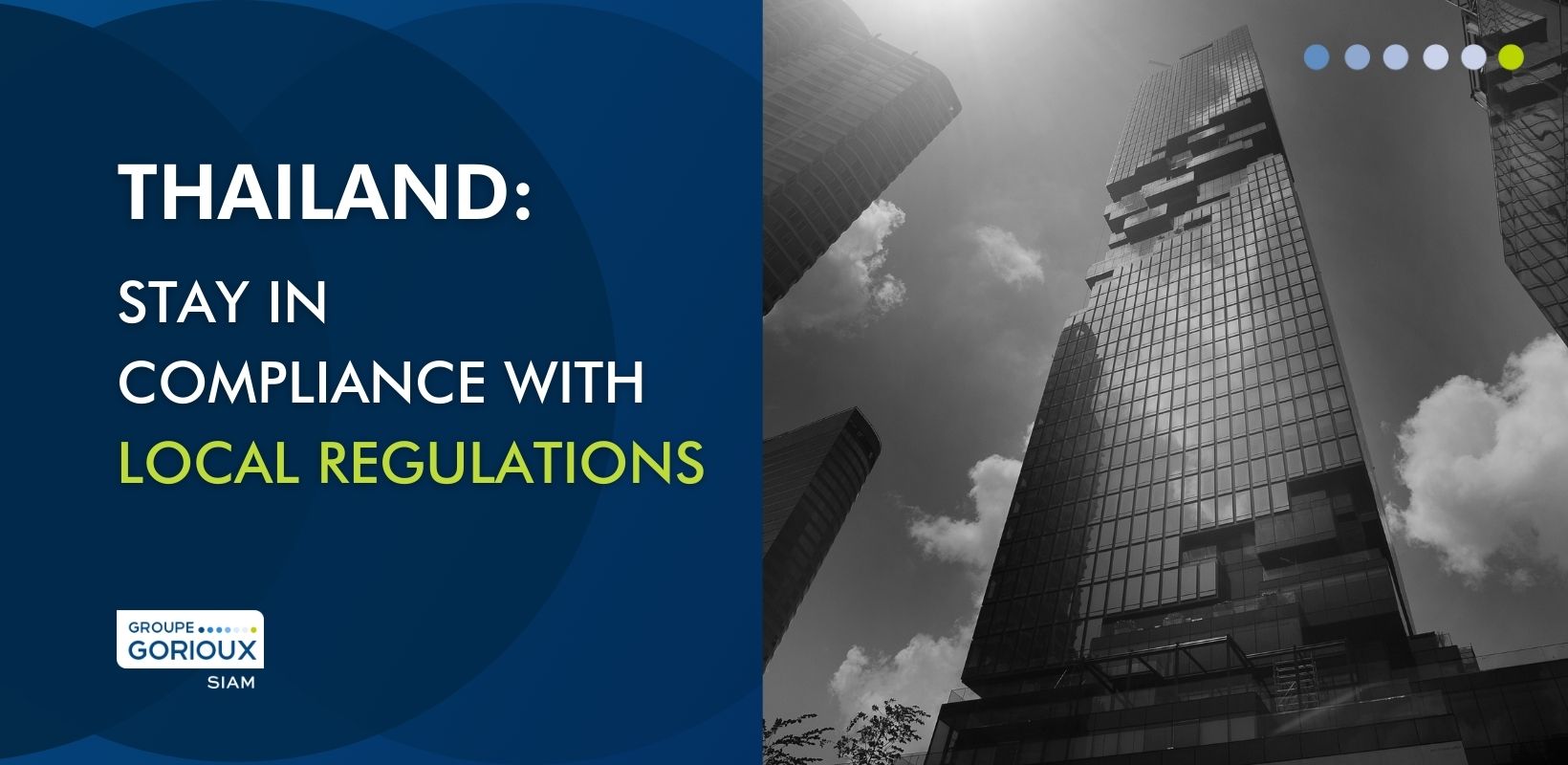Are you planning to start or expand your business in Thailand? You’re not alone. Thailand offers a dynamic market and countless opportunities. Whether you’re an entrepreneur chasing your next big break or a business owner looking to expand into Southeast Asia, Thailand offers a dynamic and rewarding playground. But excitement alone isn’t enough, success requires staying compliant with Thai regulations. Missing a single legal step could mean fines, business restrictions, or even forced closure.
1. Choosing the Right Business Structure
Your first big decision? Picking the right business structure. In Thailand, you have several options, and choosing the wrong one could limit your operations or cost you unnecessary fees. Here are the most common ones:
- Limited Company (Co., Ltd.) – The most popular choice for foreign entrepreneurs. You’ll need at least three shareholders and a registered capital of 1 million baht.
- Branch Office – If you’re expanding an existing business from abroad, this could be a good option. Just be ready to invest at least $156,000 USD and renew your Foreign Business License (FBL) every five years.
- Representative Office – Perfect for market research, liaison, or customer support, but it can’t generate revenue in Thailand.
Our tip: Choosing the wrong structure can lead to costly restrictions or extra paperwork later. If you’re unsure, consult an expert like Gorioux Siam before registering your company.
o
o
2. The Foreign Business Act: What You Can and Can’t Do
Thinking of running a business in Thailand? Not so fast. The Foreign Business Act (FBA) puts limits on what foreign-owned companies can do.
The FBA divides business activities into three lists:
- List 1 – Completely off-limits to foreigners (e.g., agriculture, media, land trading).
- List 2 – Requires special approval and, in some cases, a Thai majority partner.
- List 3 – Allows foreign participation but requires a Foreign Business License (FBL).
Our tip: Before investing, check if your business needs an FBL or a local Thai partner. Breaking FBA rules can result in fines, legal action, or even business closure.
o
3. Registering Your Business: The Essential Paperwork
Once you’ve chosen your structure, it’s time to register your business with the Department of Business Development (DBD). Be prepared to submit:
- Memorandum of Association
- Company Articles of Association
- List of shareholders & directors
- Registered office details
What happens if you skip this step? Your business won’t be legally recognized, which means no contracts, no bank accounts, no tax registration—basically, you won’t be able to operate.
Our tip: Hire a local expert like Gorioux Siam to handle this process, it’ll save you time and ensure all documents are properly filed.
o
o
4. Tax & Accounting: What Every Business Owner Needs to Know
Thailand has strict tax and accounting rules, and missing deadlines can cost you big time. Here’s what you need to do:
- Tax ID Registration – Required for all businesses at the Thai Revenue Department.
- Accounting Compliance – Keep detailed records following Thai accounting standards.
- Annual Financial Statements – Submit financial reports to the DBD and Revenue Department.
- VAT, Corporate Tax, and Withholding Tax – File on time to avoid heavy fines.
Our tip: Late tax filings = penalties. Work with an accountant who understands the Thai system to stay ahead of deadlines.
o
5. The Personal Data Protection Act (PDPA): Why It Matters
Think you can collect customer data without restrictions? Think again. Thailand’s PDPA law (similar to GDPR) requires businesses to:
- Get clear consent before collecting customer data.
- Securely store personal information to prevent leaks.
- Allow customers to access or delete their data on request.
Our tip: Non-compliance with PDPA can lead to fines up to 5 million baht ($140,000 USD).
o
6. Licenses & Permits: Industry-Specific Rules
Depending on your business type, you may need extra licenses or permits. A few examples:
- Restaurants & Food Industry – Requires food safety and health permits.
- Manufacturing – Needs environmental & factory licenses.
- Financial Services – Must comply with Bank of Thailand regulations.
Our tip: Research industry-specific licenses in advance to avoid delays or fines.
o
7. Hiring Staff? Know Your Labor Law Obligations
As an employer, you have legal responsibilities toward your employees, including:
- Contracts – Must comply with Thai labor laws.
- Minimum Wage – Ensure you’re paying at least the required rate.
- Work Hours & Leave – Follow regulations on overtime, public holidays, and annual leave.
- Social Security – Register employees with the Thai Social Security Office.
Our tip: Labor law violations can lead to lawsuits, fines, or reputational damage.
o
8. Foreigners in Business: Work Permits & Visas
If you’re a foreign entrepreneur or hiring expats, you must comply with visa and work permit rules:
- Business Visa (Non-Immigrant B) – Required before entering Thailand to work.
- Work Permit – Employers must prove they hire four Thai employees per foreign worker.
- 90-Day Reporting – Expats must check in with immigration every 90 days.
Our tip: Operating without the right visa or work permit could lead to fines, deportation, or a permanent ban from Thailand.
o
o
9. What Happens If You Don’t Comply?
Ignoring compliance rules can result in:
- Heavy fines
- Business suspension or closure
- Legal action
- Visa cancellation & deportation
Avoid the nightmare—stay ahead of the rules.
o
10. Need Help? Gorioux Siam Has Your Back!
Thailand’s business regulations can feel overwhelming, but you don’t have to navigate them alone. Gorioux Siam specializes in accounting, tax compliance, and business consulting for entrepreneurs like you.
Contact us today to ensure your business runs smoothly, legally, and profitably in Thailand. Your success starts with the right expertise!
Contact us via email at info-siam@gorioux.com, or by phone at +66 (0)200-48-549 or +66(0)33-0032-31.
For more information, visit our official pages on Facebook and LinkedIn!
Check out our other articles: HERE

